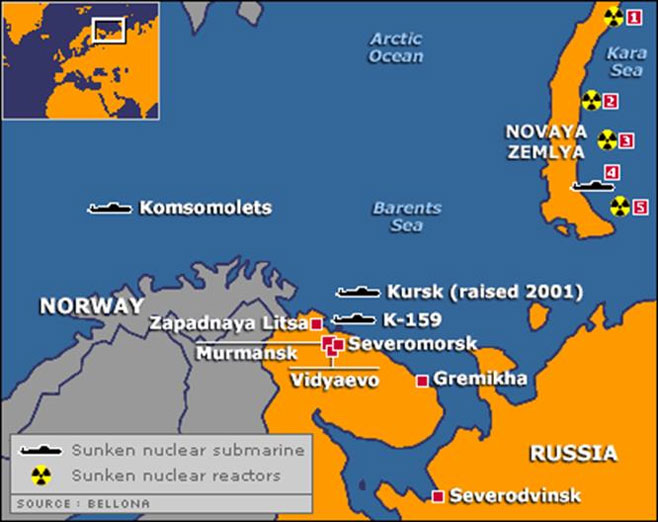November 15, 2014
The very late adoption of some Jewish surnames
Kathy Shaidle linked to this post at Business Insider from back in January:
Ashkenazic Jews were among the last Europeans to take family names. Some German-speaking Jews took last names as early as the 17th century, but the overwhelming majority of Jews lived in Eastern Europe and did not take last names until compelled to do so. The process began in the Austro-Hungarian Empire in 1787 and ended in Czarist Russia in 1844.
In attempting to build modern nation-states, the authorities insisted that Jews take last names so that they could be taxed, drafted, and educated (in that order of importance). For centuries, Jewish communal leaders were responsible for collecting taxes from the Jewish population on behalf of the government, and in some cases were responsible for filling draft quotas. Education was traditionally an internal Jewish affair.
Until this period, Jewish names generally changed with every generation. For example, if Moses son of Mendel (Moyshe ben Mendel) married Sarah daughter of Rebecca (Sara bat rivka), and they had a boy and named it Samuel (Shmuel), the child would be called Shmuel ben Moyshe. If they had a girl and named her Feygele, she would be called Feygele bas Sora.
Jews distrusted the authorities and resisted the new requirement. Although they were forced to take last names, at first they were used only for official purposes. Among themselves, they kept their traditional names. Over time, Jews accepted the new last names, which were essential as Jews sought to advance within the broader society and as the shtetles were transformed or Jews left them for big cities.
Another hidden ecological disaster from the Cold War
I’d heard that the Soviet navy had dumped some potentially hazardous nuclear wastes in the Arctic, but I didn’t realize just how much they’d dumped:
While Russia’s nuclear bombers have recently set the West abuzz by probing NATO’s air defenses, a far more certain danger currently lurks beneath the frigid Arctic waters off Russia’s northern coast — a toxic boneyard for Soviet nuclear ships and reactors whose containment systems are gradually wearing out.
Left to decay at the bottom of the ocean, the world is facing a worst case scenario described as “an Arctic underwater Chernobyl, played out in slow motion,” according to Thomas Nilsen, an editor at the Barents Observer newspaper and a member of a Norwegian watchdog group that monitors the situation.
According to a joint Russian-Norwegian report issued in 2012, there are 17,000 containers of nuclear waste, 19 rusting Soviet nuclear ships and 14 nuclear reactors cut out of atomic vessels at the bottom of the Kara Sea.

The K-159 went down in 2003 while it was being towed to the town of Polyarny — home of Russia’s primary shipyard used for servicing and decommissioning nuclear powered vessels — for dismantling. Nine sailors died trying to keep it afloat when a storm hit, ripping off makeshift pontoons welded to the side to ensure the porous rusting hull didn’t sink en route. Estimates place around 800 kilograms of spent uranium fuel aboard the K-159, according to Bellona.
“Unfortunately, to my knowledge, there are currently no concrete plans to raise [radioactive] objects, and potentially raising the submarine is a Russian responsibility,” said Ingar Amundsen, head of the section for international nuclear issues at the Norwegian Radiation Protection Authority (NRPA), a governmental body tasked with keeping watch over the nuclear threats in the Arctic.
Men’s unwillingness to ask for directions … may be an evolutionary advantage
I wanted to title this post “Have dick, will travel”, but I decided it wasn’t the most dignified way to introduce this topic:
The reason men refuse to ask for directions when lost isn’t down to pig-headed stubbornness, but rather a hard-wired evolutionary instinct which has developed so they can, err, get more sex — say anthropologists.
Students with clipboards from the University of Utah interviewed dozens of members of the Twe and Tjimba tribes in northwest Namibia. They found that men who did better spatial tasks, unsurprisingly, travelled farther — but also had children with more women.
Anthropologist Elizabeth Cashdan said the data supports the hypothesis that men have evolved a greater spatial ability to “benefit reproductively from getting more mates” and “ranging farther is one way they do this.”
Compared with other cognitive differences between the sexes, such as cultural differences in maths skills, the difference in spatial skills is much larger, found the research.
QotD: Women, careers, and equality
So what do you do about women who freely make choices that perpetuate structural inequalities? Do you stop them from making the choices? Neither Harvard, nor Kantor, seems to have a good answer. But that is the core dilemma. Maybe women drop out because they have a deeper biological connection to their kids. Maybe they do so because they’re raised to be nurturers, or maybe because they don’t feel the same personal anguish that a man does when he gives up on the dream of a top-flight career. Maybe if men felt they had the option to stay home, more would. And maybe women find the role of breadwinner more stressful than men do — all the women I know who are the primary earners are neurotic about it in a way that the men I know don’t seem to be. I’m not talking about the fear that your partner will resent your success; these are women married to admirably feminist men. I’m just talking about a near-constant fear that you will not be able to provide, and your family will end up horribly destitute. I’m not saying that men don’t experience that worry, but they don’t seem tormented by it the way the women I talk to are.
Or maybe it’s that women just don’t want it badly enough. In my experience, one of the reasons that women drop out of finance, and 80-hour-a-week fields more generally, is that they just don’t want it as badly as the men. In their 20s, they’re happy to work those kinds of hours, even at tasks they find boring. They do well at them, too. But a lot of these jobs aren’t actually that rewarding as work: The investment banking associates I observed seemed to spend most of their time on basically clerical tasks, tabulating data and proofreading PowerPoints. And eventually most of the women seem to say “You know, I just care more about relationships than I do about success.” There are always exceptions on both sides: women who will sacrifice anything for the career they feel called to and men who would rather be home. But on average, the women I talk to just aren’t nearly as willing to sacrifice close friendships, and family relationships, for the sake of their jobs.
We can say that they shouldn’t have to, of course, but the sad fact is that there are trade-offs in this world. In your 20s you can finesse them — work super hard and also have a roaring social life — because you have boundless energy and no one depending on you. This is the age at which young women write furious articles and Facebook posts denouncing anyone who suggests that women opt-out of high pressure jobs for any reason other than the rankest sexism.
As you age, your body refuses to cooperate with your plan to work from 7 a.m. to 11 p.m. and then hang out with friends. Your parents start to need you more, if only to lift heavy things. And of course, there are kids. You start having to make direct trade-offs, and then suddenly you look up and you haven’t seen your friends for two years and your mother is complaining that you never call. This is the age at which women write furious articles defending their decision to step back from a high-pressure job and/or demanding subsidized childcare, generous paid maternity leave and “family friendly policies,” a vague term that ultimately seems to mean that people who leave at five to pick up the kids should be entitled to the same opportunities and compensation as people who stay until 9 to finish the client presentation. These pleas usually end (or begin) by pointing to the family-friendly utopia of Northern Europe, except that women in Europe do less well at moving into high-test management positions. Whatever the government says, someone who takes several years off work is in fact less valuable to their company than someone who doesn’t.
Megan McArdle, “Harvard’s Gender Bender”, Bloomberg View, 2013-09-10




